Book review: Casablanca – Creating an involuntary masterpiece, by Renzo Mora
Comumente escrevo aqui sobre filmes cujos bastidores são tão ou mais interessantes que o produto final que chegou às telas. As histórias de como elenco e equipe foram reunidos, como interagiram e como deram à luz o filme que vemos geralmente não transparecem na tela, mas o making-off pode surgir anos depois, como é o caso deste livro.
I often write about movies whose backstage stories are even more interesting than the final feature film: there are tales of how cast and crew were escalated, how they interacted with each other and how, in spite of a lot of troubles, some great movies were done. We usually don’t see the animosity translated to the screen, but the making-off can surface years later, like in this book.
“Casablanca” surgiu como mais um produto de uma linha de montagem. Nada em sua gênese indicava que seria um filme especial. A história veio de uma peça fracassada e pouco conhecida chamada “Everybody comes to Ricky’s”. O elenco era o time habitual da Warner Brothers, com uma ou outra alteração no meio do caminho (George Raft, por exemplo, recusou o papel de Rick Blaine). Havia uma música-tema, que quase foi cortada porque era velha, tola e em nada contribuía para o avanço da história. Aí tudo se juntou, e o resultado foi um dos filmes mais amados do mundo.
“Casablanca” was just another product from an assembly line. Nothing in its genesis indicated it would be a special film. The story came from a theater text that was a failure and soon forgotten, called “Everybody Comes to Ricky’s”. The cast was made by the usual team working at Warner Brothers, with one change or another along the way (George Raft, for instance, refused the role of Rick Blaine). There was a theme song, but it was almost cut because it was old, silly and didn’t do anything to advance the plot. Then everything got together, and the result was one of the most beloved films in the world.
O subtítulo do livro é “A criação de uma obra-prima involuntária do cinema”, mas bem que poderia ser “Tudo que você queria saber sobre Casablanca mas não tinha a quem perguntar”. O livro é fruto de uma grande pesquisa do autor Renzo Mora, e em muitas vezes se apresenta realmente como isto: uma pesquisa científica. Embora seja classificado na categoria “ensaio sobre cinema”, o livro tem muitas citações de outras obras, como uma tese ou artigo científico também tem.
The subtitle of the book is “Creating an involuntary masterpiece”, but it could be “Everything you wanted to know about Casablanca but was afraid to ask”. The book was written after author Renzo Mora did an intense research, and in many occasions it really looks like the result of a scientific research. It is classified as “movie essay”, but the book has many citations from other sources, like a thesis or scientific article does.
O conteúdo é amplo: um pouco da vida e da carreira dos atores e do diretor Michael Curtiz, com destaque, óbvio, para Bergman e Bogart; a narrativa toda do filme, a música, os coadjuvantes, o contexto histórico, a repercussão de Casablanca, o Oscar, as influências, uma linha do tempo, uma coleção de falas memoráveis do filme e, obviamente, muitas imagens. É conteúdo para todos os gostos.
The content is variated: a little bit about the actors' lives and careers, focusing obviously on Bergman and Bogart, an overview of director Michael Curtiz's work, the whole plot recounted, the soundtrack, the supporting players, the historical context, the reception of Casablanca, the influences, a timeline, a collection of memorable quotes and, of course, a lot of images. It is content enough to please all tastes.
Tamanha pesquisa descobre algumas narrativas que não encontramos facilmente na internet, como o reencontro de Bogie e Ingrid na Itália em 1954, ou como o playboy brasileiro Jorginho Guinle presenciou a memorável cena de “As Time Goes By” sendo gravada graças a uma feliz coincidência.
This huge research discovers some stories we can't easily find on the internet, like when Bogie and Ingrid met in Italy in 1954 or how Brazilian playboy Jorginho Guinle watched the recording of the famous “As Time Goes By” sequence totally by chance.
De fácil leitura, com pouco mais de cem páginas, este livro é recomendadíssimo, ainda mais em tempos de muito plágio e pouca checagem dos fatos em todas as áreas, mas no jornalismo cinematográfico em particular.
Easy to read, with a little more than 100 pages, this book is recommended, even more so when we consider that we are living in times when plagiarism is king and so few people bother to check the facts. Bad times for journalism in general, and film criticism in particular.

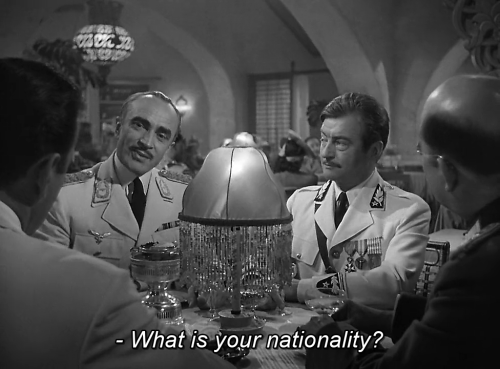
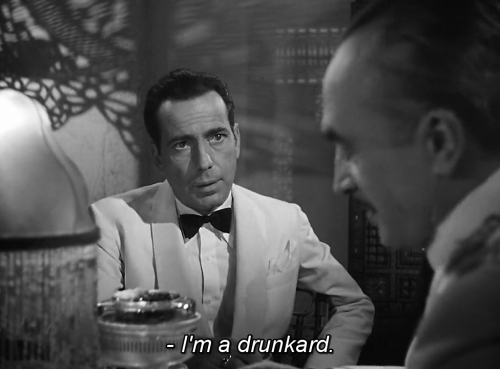

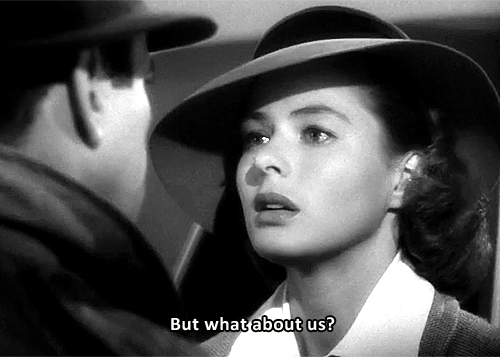
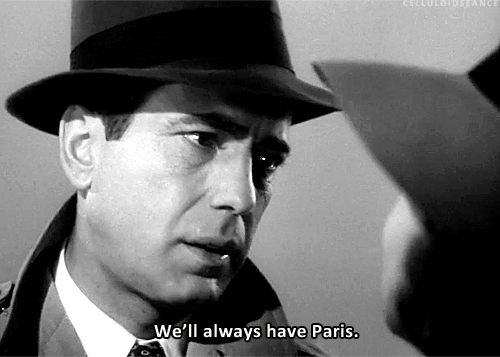
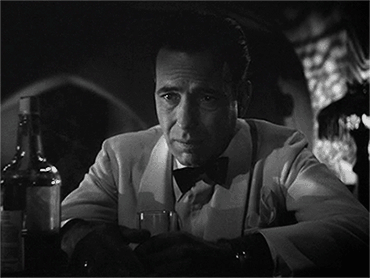

3 comments:
ai, vou apanhar. não amo esse filme. demorei tempo demais para ver, quando vi minha expectativa era muito alta. mas claro, é um clássico. comentei aqui http://mataharie007.blogspot.com.br/2008/09/casablanca.html
beijos, pedrita
Curioso. Vou procurar. Ele conta detalhes sobre a participação de Conrad Veidt? Abraços
Não sou fã de "Casablanca", apesar de amar Bogart, Ingrid, Lorre e Veidt.
Post a Comment